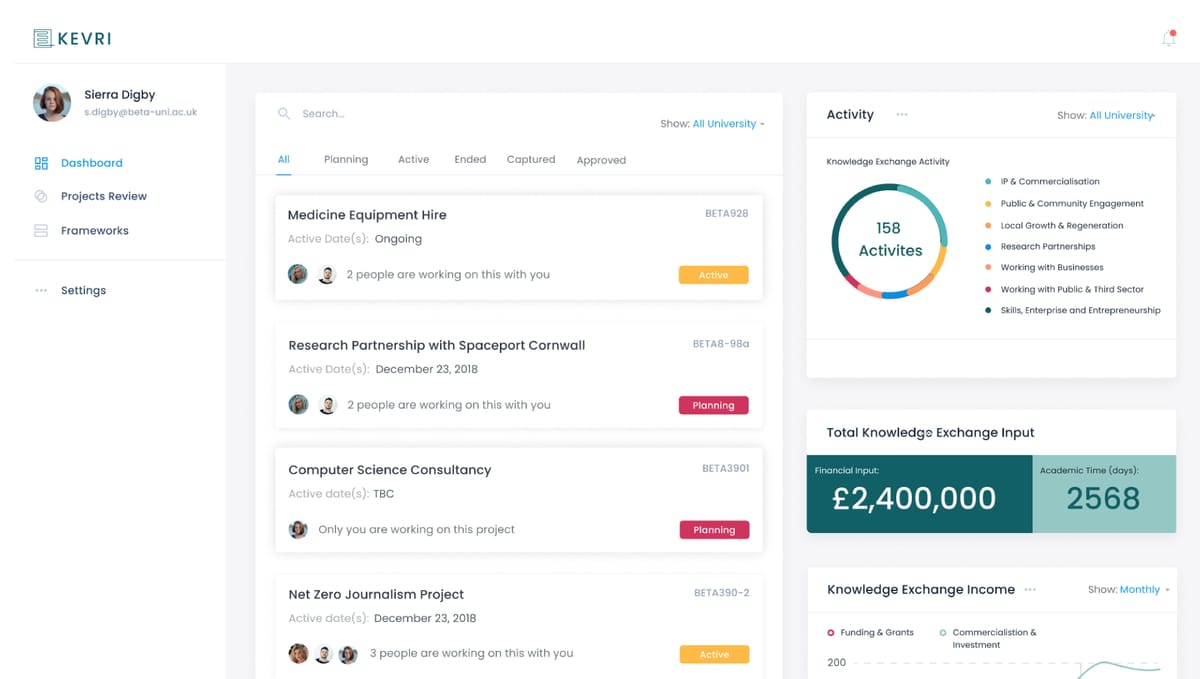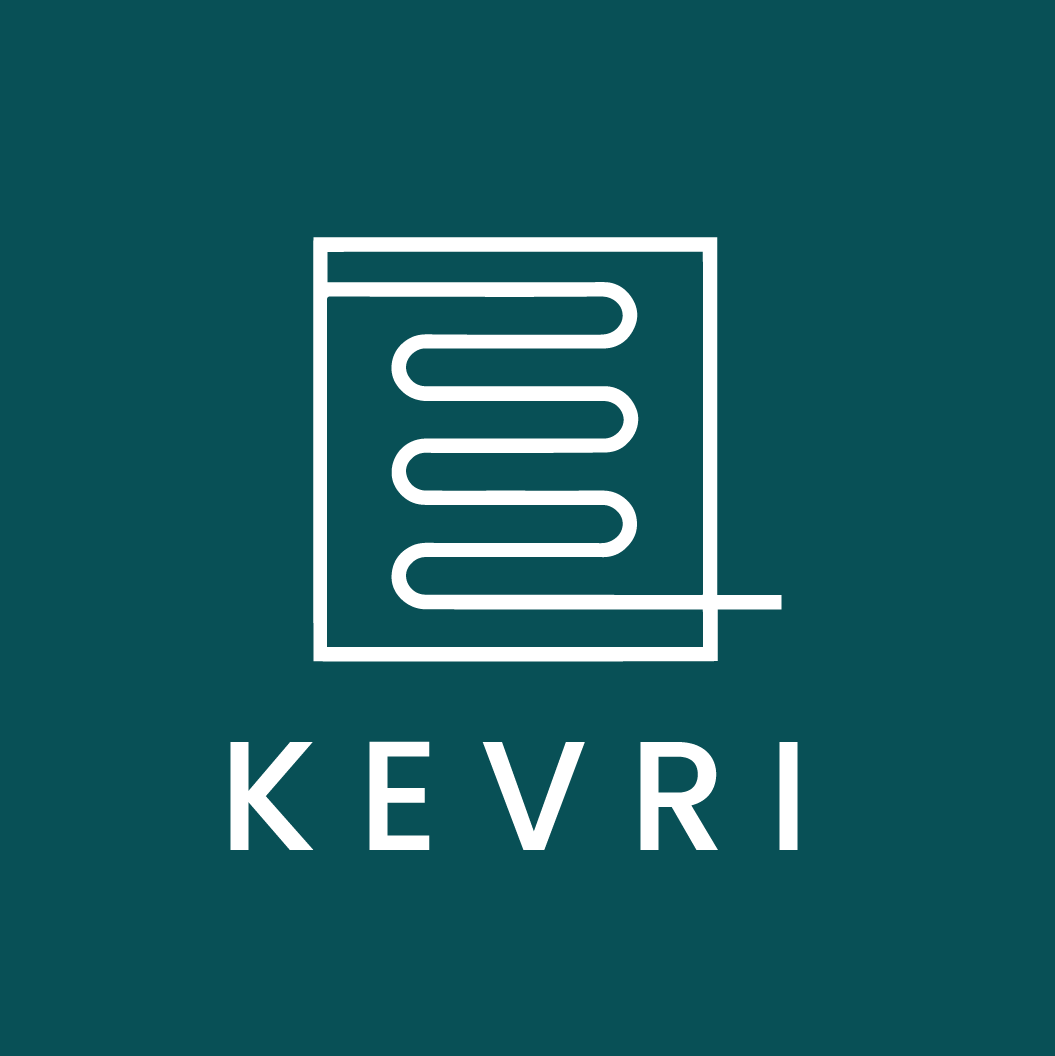How KEVRI software benefits the higher education KE landscape
This month, we are beta-testing our software with 10 UK universities.

University innovation is fast-moving.
Every academic year, university staff plan and partake in Knowledge Exchange (KE) activities to collaborate with third-party partners to make a positive social and economic impact.
Yet an institution’s internal data collation processes may struggle to keep up with the pace.
KEVRI Chief Product Officer Corin Mynett acknowledges the challenges that universities face when transitioning impactful collaborations from campus to community:
''Essential framework data can be trapped across departments, and if a staff member struggles to understand a KE process, universities lose pivotal opportunities to secure long-lasting partnerships with SMEs, charities, businesses, community groups and more.''
Hence her drive to design and build an efficient technical solution, alongside KEVRI Software Developer Saile Villegas, to help universities optimise their Knowledge Exchange activities.
‘’Every university plays a civic role in transforming people and places through third-party partnerships and KE projects, and we want to empower those collaborations through our software.
''By centralising disconnected data, capturing diverse forms of impact, and supporting academics and staff understanding of KE, we can help streamline a university’s innovation pipeline.''
This month, KEVRI is beta-testing its solution with 10 UK universities.
Armed with academic and university staff feedback, we are taking a build-test-iterate approach to deliver key Knowledge Exchange software benefits such as these:
FRAMEWORK NAVIGATION
Higher Education Frameworks are complex.
Through our intuitive Knowledge Exchange tool, we aim to cut the workload of Knowledge Exchange Practitioners (KEPs) and university staff by helping them navigate frameworks such as the Knowledge Exchange Framework (KEF), the Higher Education Business and Community Interaction Survey (HE-BCI), and the Higher Education Innovation Fund (HEIF).
REAL-TIME REPORTING
Records of Knowledge Exchange activities go missing.
To avoid this, we have integrated real-time reporting to allow university staff and Knowledge Exchange Practitioners (KEPs) to submit live projects that are in the planning, ongoing, or completion stage across departments.
We also matchmake activities to impact metrics to allow staff to witness the impact they are making through their collaborations with third-party partners.
CROSS-DEPARTMENTAL COLLABORATION
Staff changeovers and miscommunication can hinder university reporting.
To prevent this, KEVRI adopts a multi-tier ecosystem to encourage cross-departmental collaboration. This helps us to collect the smaller, yet logistical assets of reporting to paint a bigger picture of a Knowledge Exchange activity.
For instance, submission dates, team members, and other details that are easily missed due to staff changeovers and miscommunications.
KEVRI LOGIC MODEL
Sometimes a university’s impact story is left untold.
Our KEVRI logic model adopts fiscal and non-fiscal methods of reporting to showcase the transformative impact that universities have on people and place.
By highlighting an institution’s public and community engagement, we can help showcase and evaluate its impact on its surrounding communities.
To discover more KEVRI software benefits or further information on our upcoming development phases, please email KEVRI Chief Product Officer (CPO) at corin.mynett@kevri.co, or subscribe to our newsletter on kevri.co for KEVRI updates!





